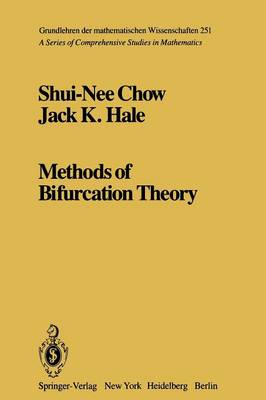An alternative title for this book would perhaps be Nonlinear Analysis, Bifurcation Theory and Differential Equations. Our primary objective is to discuss those aspects of bifurcation theory which are particularly meaningful to differential equations. To accomplish this objective and to make the book accessible to a wider we have presented in detail much of the relevant background audience, material from nonlinear functional analysis and the qualitative theory of differential equations. Since there is no good reference for some of the mate rial, its inclusion seemed necessary. Two distinct aspects of bifurcation theory are discussed-static and dynamic. Static bifurcation theory is concerned with the changes that occur in the structure of the set of zeros of a function as parameters in the function are varied. If the function is a gradient, then variational techniques play an important role and can be employed effectively even for global problems. If the function is not a gradient or if more detailed information is desired, the general theory is usually local. At the same time, the theory is constructive and valid when several independent parameters appear in the function. In differential equations, the equilibrium solutions are the zeros of the vector field. Therefore, methods in static bifurcation theory are directly applicable.
- ISBN13 9781461381617
- Publish Date 8 November 2011 (first published 31 December 1982)
- Publish Status Active
- Publish Country US
- Imprint Springer-Verlag New York Inc.
- Edition Softcover reprint of the original 1st ed. 1982
- Format Paperback
- Pages 525
- Language English
